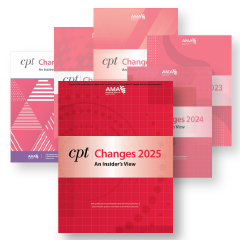by Aimee L. Wilcox, CPMA, CCS-P, CST, MA, MT
May 31st, 2022
Care Management Services were developed to improve quality of care and consistency in the treatment of patients with one or more chronic health conditions putting them at risk of significant acute exacerbation, decompensation, hospitalization, or death. Both 2021 and 2022 saw changes to the codes for reporting these services, including five new codes, revised code descriptions, and a completely new type of care management service. A quick overview of the three subcategories that make up this section are listed below with the [R] identifying revised codes and [N] new codes
- Chronic Care Management (CCM)
- Complex Chronic Care Management (CCCM)
- Principal Care Management (PCM)[New Section]
In 2019, just prior to the changes in this section, CMS published the MLN booklet "Chronic Care Management Services", which provides a list of some of the following chronic conditions these services are meant to monitor:
- Alzheimer’s disease and related dementia
- Arthritis (osteoarthritis and rheumatoid)
- Asthma
- Atrial fibrillation
- Autism spectrum disorders
- Cancer
- Chronic obstructive pulmonary disease (COPD)
- Depression
- Diabetes
- Heart disease and hypertension
- Infectious diseases (e.g., AIDS/HIV, chronic hepatitis)
Initiating Care Management Services
Care management services are a newer Medicare benefit encouraged to help providers manage the chronic conditions putting their patients at risk of worsening health. The provider initiates the program by discussing it with the patient during either a routine Evaluation and Management (E/M) encounter, Annual Wellness Exam (AWE), or Initial Preventive Physical Exam (IPPE). The program is outlined for the patient, including details about deductibles, coinsurance, the team approach, and alternative communication options. If interested, the patient gives written consent that remains in the medical record and the provider performs a comprehensive physical examination that addresses physical, mental, cognitive, social, functional, and environmental conditions affecting the patient and develops a care plan to address each chronic condition, which will be followed by the team and monitored or revised by the physician/QHP.
An electronic copy of the care plan must be entered into the EHR system and shared with the staff members who will be part of the care management services team (i.e., physicians, QHPs, qualified clinical staff members). Each member of the team must have access to the care plan to perform patient services appropriately and according to the care plan outlined by the physician/QHP. When clinical staff perform care management activities, they are doing so as an incident-to service, under general supervision of a physician/QHP. Deviation from the treatment plan by other than the physician/QHP is prohibited unless the care plan shows the modifications or revisions were ordered by the treating physician/QHP.
Note: The physician/QHP-developed treatment plan must be in electronic form and accessible by all staff members participating in the care management services for the patient.
Care Management Services are Time-Based
Clinical staff activities are listed in the CPT codebook, and time spent performing these services is counted towards the total time spent performing the specific type of care management service reported. Time spent performing qualifying activities may only be counted towards one service. Time spent performing separately billable services cannot be counted towards the total time of care management services. While there are no CCCM codes specific for reporting physician/QHP services, if the physician/QHP performs clinical staff activities, they may count their time towards the total clinical staff time for the encounter.
Each subcategory of these services has a primary code (99490, 99491, 99487, 99424, 99426), which is reported for the initial designated time period listed in the code description. After the full time of the initial code has been fulfilled, an add-on code may be reported once the full time of the add-on code has also been completed. For specific times associated with each unit of service reportable, please refer to the updated tables in the CPT manual for Principal Care Management Services and Care Management Services.
Note: The total time for the code description must be met and documented or the service is not reportable. For example, code 99490 has a time requirement of 20 minutes so you cannot report 99490 if less than 20 minutes of time has been documented in the medical record.
Three Types of Care Management Services
As noted at the beginning of this article, as of 2022, there are three subcategories of care management services:
- Chronic Care Management (CCM)
- Complex Chronic Care Management (CCCM)
- Principal Care Management (PCM)
CCM and CCCM services require that the medical record support the following requirements:
- The patient must have multiple (two or more) chronic conditions, that are expected to last for at least 12 months or until the patient dies.
- While the patient may have more than two chronic conditions, at least two of them must put the patient at a significant risk of death, acute exacerbation, decompensation, or functional decline.
- The care plan developed to manage the patient’s chronic conditions must be comprehensive in nature, available electronically, established at onset of care, and the documentation should track how it was implemented, revised, and monitored.
Each type of care management service has specific performance, documentation, and reporting criteria, as follows:
- Chronic Care Management (CCM) 99490, 99439(+), 99491, 99437(+)
- Two or more chronic medical or psychosocial conditions lasting 12 months or until death.
- Chronic conditions place the patient at significant risk of death, acute exacerbation or decompensation, or functional decline.
- Requires minimal to low medical decision making.
- Care management activities performed by clinical staff for at least 20 minutes during the calendar month (99490, 99491) or 30 minutes when performed by a physician/QHP.
- Complex Chronic Care Management (CCCM) 99487, 99489(+)
- Two or more chronic conditions lasting 12 months or until death.
- Patient at significant risk of death, acute exacerbation, decompensation, or functional decline.
- Multiple conditions present that require moderate to high medical decision making and multiple medication or treatment use.
- Needs coordination of multiple specialists and services.
- Needs assistance with activities of daily living (ADLs) or help adhering to the treatment plan due to physical or cognitive impairments.
- Complicating co-morbid conditions such as dementia, diabetes, substance abuse.
- Care complicated by limited social support or problems accessing care.
- Care management activities require a minimum of 60 minutes during the calendar month by clinical staff. There are no CCCM codes for reporting physician/QHP services in this category; however, physician/QHP time spent may be counted towards the clinical staff time (99487, 99489).
-
Principal Care Management (PCM) 99424, 99425(+); 99426, 99427(+)
-
- Services that focus on medical and/or psychological needs of a single, complex chronic condition, which is expected to last at least 3 months or longer.
- Condition places patient at significant risk of death, acute exacerbation, decompensation, functional decline, or hospitalization.
- Encounters require frequent adjustments to the medication regimen and/or management of the condition.
- Care plan requires continued monitoring, development, and/or revision of the care plan by the physician/QHP.
- Documentation identifies ongoing communication and coordination of care between practitioners participating in the patient’s care.
- PCM activities requires a minimum of 30 minutes a month.
Note: While risk of hospitalization is specifically stated in the PCM code description, it does not mean that hospitalization does not apply to CCM or CCCM services, as an acute exacerbation of a chronic condition may also require hospitalization.
For additional information on care management services, join us for our next webinar, "Coding 2022 Care Management Services" scheduled for Thursday, June 2, 2022 @ 10:15 AM PT, 11:15 AM MT, 12:15 PM CT, 1:15 PM ET.
Click HERE to register for this FREE webinar.
References/Resources
About Aimee L. Wilcox, CPMA, CCS-P, CST, MA, MT
 Aimee L. Wilcox is a medical coding, billing, and auditing consultant, author, and educator with more than 30 years of clinical and administrative experience in healthcare, coding, billing, and auditing. Medicine, including coding and billing, is a constantly changing field full of challenges and learning and she loves both. Aimee believes there are talented medical professionals who, with proper training and excellent information, can continue to practice the art of healing while feeling secure in their billing and reimbursement for such care.
Aimee L. Wilcox is a medical coding, billing, and auditing consultant, author, and educator with more than 30 years of clinical and administrative experience in healthcare, coding, billing, and auditing. Medicine, including coding and billing, is a constantly changing field full of challenges and learning and she loves both. Aimee believes there are talented medical professionals who, with proper training and excellent information, can continue to practice the art of healing while feeling secure in their billing and reimbursement for such care.

 Quick, Current, Complete - www.findacode.com
Quick, Current, Complete - www.findacode.com